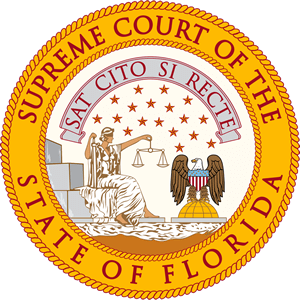
Probate process – usually can be completed within a year
Every probate estate is unique, but most involve the following steps:
- Filing of a petition with the proper probate court
- Notice to heirs under the will or to statutory heirs (if no will exists)
- Petition to appoint Executor (in the case of a will) or Administrator for the estate
- Inventory and appraisal of estate assets by Executor/Administrator
- Payment of estate debt to rightful creditors
- Sale of estate assets
- Payment of estate taxes, if applicable
- Final distribution of assets to heirs
Probatable Assets
Generally, probate assets are those assets in the decedent’s sole name at death or otherwise owned solely by the decedent and which contain no provision for automatic succession of ownership at death. For example:
- Bank accounts, and real estate (other than homestead), in just the decedents name are probatable. However if these assets are held in-trust-for (ITF) another, or held jointly with rights of survivorship (JTWROS) with another, is not a probate asset;
- Property owned by husband and wife as tenants by the entirety is not a probate asset on the death of the first spouse to die, but goes automatically to the surviving spouse.
- Life insurance, retirement plans, and annuities are generally not probate assets
This list is not exclusive but is intended to be illustrative.
Use these documents as needed
PROBATE & TRUSTS FAQ
How are the debts of the decedent handled?
Upon publication of notice of a notice to creditors, a claimant may file a “statement of claim” against the estate. This claim is generally required to be filed within the first three months (non claim period) of publication of a prescribed notice in a countywide newspaper. The personal representative is required to use diligent efforts to give actual notice of the probate proceeding to “known or reasonably ascertainable” creditors, to afford them an opportunity to file claims. The personal representative or any other interested person may file an objection to the statement of claim.
Family Administration
Family Administration is generally available if beneficiaries consist solely of a surviving spouse, lineal descendants (i.e., children, grandchildren, great grandchildren, etc.) or lineal ascendants (i.e., parents, grandparents, great grandparents, etc.), and the value of the gross estate for federal estate tax purposes is less than $60,000.
Under Family Administration, the persons who receive the estate assets remain liable for claims against the decedent for two years after the date of death. The two-year period may be reduced by using Formal Administration until all claims of creditors have been barred.
Summary administration
Summary Administration is generally available if the value of the estate subject to probate in Florida (less property which is exempt from the claims of creditors) is not more than $75,000 or the decedent has been dead for more than two years.
Under Summary Administration, the persons who receive the estate assets remain liable for claims against the decedent for two years after the date of death. This period may be reduced by publication of notice in a local newspaper
Disposition without Administration
This is available if estate assets consist solely of exempt property (as defined by law and the Florida Constitution) and non-exempt personal property, the value of which does not exceed the combined total of up to $6,000 in funeral expenses, plus the amount of all reasonable and necessary medical and hospital expenses incurred in the last 60 days of the last illness.
Formal Administration
Only available for decedents who were not Florida residents as of death. This is to admit the will of a nonresident decedent to record, if certain requirements are met and the will devises Florida real estate or any right in Florida real estate. When admitted to record in any Florida county where the real estate is located, the “foreign will” serves to pass title to the real estate as if the will had been admitted to probate. This procedure is available only if either two years have passed from the decedent’s death or the domiciliary personal representative has been discharged and there has been no estate administration in Florida.
What is a Revocable Living Trust (RLT) or Living Trust?
Allows you to remain in control of your assets during your lifetime, have them managed during incapacity, and efficiently and privately transfer them to your loved ones at death according to your wishes.
The Revocable Living Trust holds legal title to your assets and provides a mechanism to manage them. You would serve as the trustee and beneficiary of your trust during your lifetime, and therefore you will still need to report income earned as the Revocable Trust on your personal tax return. You also designate successor trustee(s) to carry out your instructions for how you want your assets managed and distributed in case of death or incapacity.
In order for the Living Trust to function properly and therefore avoid probate, you need to transfer (there may be a transfer fee) many of your probatable assets to your Living Trust during your lifetime. The fact that it is “revocable” means that you can make changes to it or even terminate it at any time.
The Revocable Living Trust does not protect against creditors, lawsuits, or judgments.
What is a Durable Power of Attorney?
A Durable Power of Attorney is a document that empowers another individual to carry on your financial affairs in the event you become disabled or incapacitated. Without a Durable Power of Attorney, it may be necessary for one of your loved ones, including your wife or adult child to petition a court to be appointed guardian or conservator in order to make decisions for you when you are incapacitated. This guardianship process is time consuming, expensive, often costing thousands of dollars and it can be emotionally draining for your family.
There are generally two types of durable powers of attorney: a present Durable Power of Attorney in which the power is immediately transferred to your attorney in fact; and a springing or future Durable Power of Attorney that only comes into effect upon your subsequent disability as determined by your doctor. When you appoint another individual to make financial decisions on your behalf, that individual is called an agent or attorney in fact. Most people choose their spouse or domestic partner, a trusted family member, or friend.
Who can be a Power of Attorney?
Generally, any individual over the age of eighteen (18) and who is legally competent can establish a Power of Attorney. You may appoint multiple agents to serve either simultaneously or separately. Appointing more than one agent to serve simultaneously can be problematic because if any one of the agents is unavailable to sign, action may be delayed. Confusion and disagreement between simultaneous agents can also lead to inaction. Therefore, it is usually more prudent to appoint alternative designees in succession. Power of attorneys are mostly utilized to make decisions about your finances when you cannot. The power dies when you do and therefore a probate proceeding may be in order. Powers of attorney have fiduciary duty and cannot self-deal.
Health Care Proxy or a living will?
The law allows you to appoint someone to decide about medical treatment options if you lose the ability to decide for yourself. You can allow your health care agent to decide about all health care or only about certain treatments. You may also give your agent instructions that he or she has to follow. Your agent can then make sure that health care professionals follow your wishes and can decide how your wishes apply as your medical condition changes. Hospitals, doctors and other health care providers must follow your agent’s decisions as if they were your own.
What is a HIPAA Authorization?
Some medical providers have refused to release information, even to spouses and adult children authorized by the Healthcare Power of Attorney on the grounds that the 1996 Health Insurance Portability and Accountability Act, or HIPAA, prohibits such releases. Therefore, as part of your incapacity planning, you should sign a HIPAA authorization form that allows the release of medical information to your agents, successor trustees, family or any other individuals you wish to designate.
Can Mortgage acceleration happen upon transfer to the Revocable Trust?
Federal law prohibits financial institutions from accelerating your loan when you transfer property to your living trust as long as you continue to live in that home (less than 5 units)
Free Consultation Form
Certification




